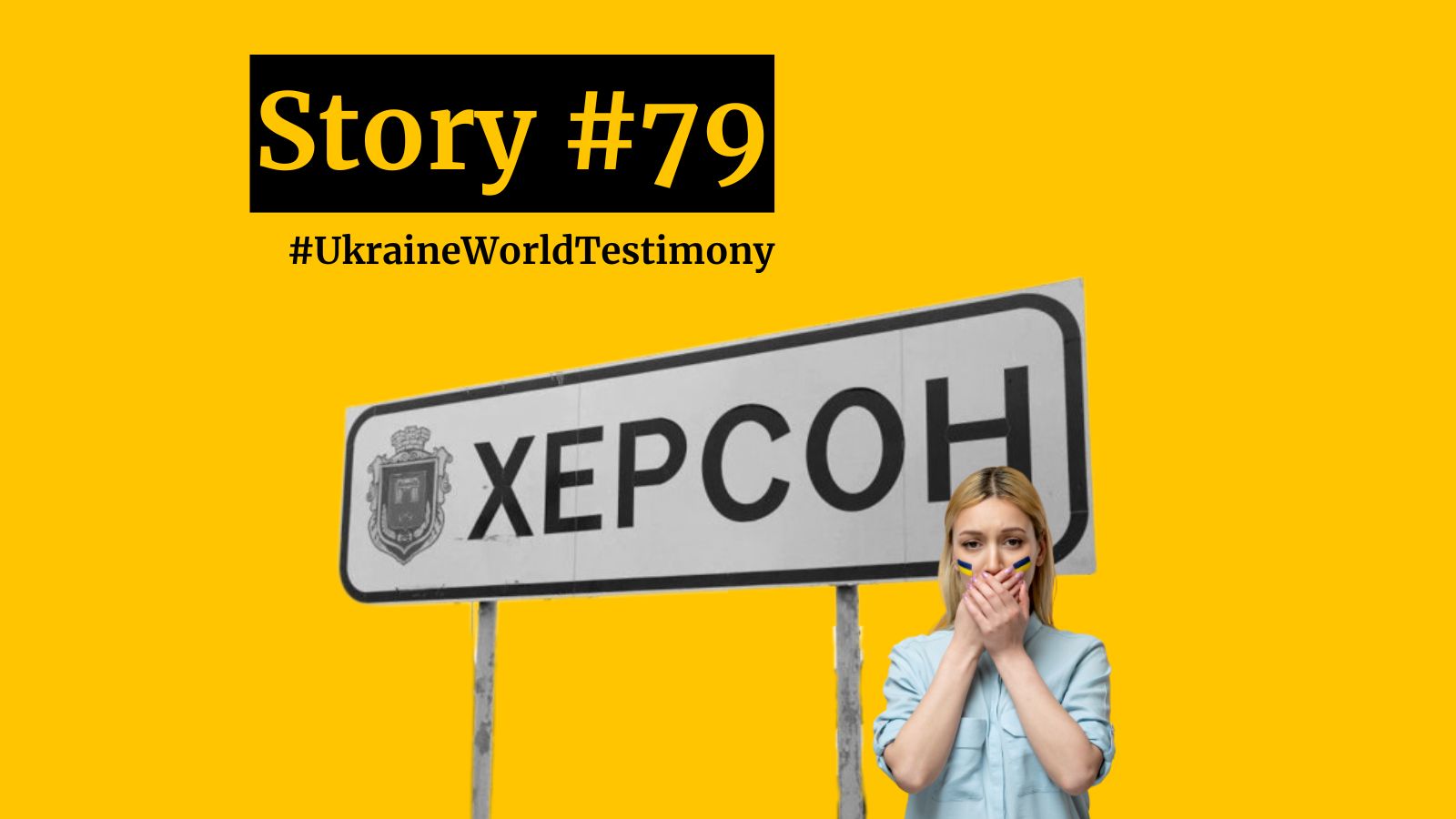Viktoria Kirilova, a local resident of Kherson and the owner of a podiatry clinic spoke about what happened in the city after the arrival of the Russian occupiers. #UkraineWorldTestimony
- Ukrainian petrol was totally gone. During the first month of the occupation, Kherson residents had to all travel on foot. It was dangerous to use cars because the occupiers would simply take them away from people. By the 7th month of the occupation, everyone from the Russian FSB, police, and their families (especially their wives) were driving cars with Kherson license plates. They would drive only Mercedes or Audi cars, simply taking what they wanted from the locals.
- The Russians expelled people from their apartments and houses. "In my opinion, it was better to have a house destroyed by one of our missiles than by having the occupiers live in it. They are a nation of freaks. They just brazenly started living among us," says Viktoria.
- They vandalized garages, looking for weapons. Absolutely all garages in Kherson were checked. If a person managed to run and open it himself, he was lucky. If not, the door was just broken down by an APC. If there was something good in the garage, the people were simply told that it no longer belonged to them. After the inspection, the Russians would draw their Z and V signs on the garages. If the letters were doubled, it meant that they really liked something in that garage (a car, valuables, tools, water scooters) and would definitely come back for it in the evening.
- Yachts and boats. The occupiers stole all of it and shot up what they didn't steal.
- Commercial properties. If the Russians liked a certain space or wanted to open a business there, they simply changed the lock and said, "We are the owners here now."
- Business. 80% of Kherson business owners closed their businesses during the occupation. Those who did not find a common language with the occupation authorities, unfortunately, were out of business by the next morning. In order to continue working, you had to re-register your business. If you didn't have a registered private enterprise, you first had to get a Russian passport and then register your business. You then had to open an account at a Russian bank, which is under sanctions and where transactions can only be made between the occupied territories. And if a person did not do all this, then from September 1, they faced a fine of 148 thousand rubles and confiscation of property. As the owner of a medical clinic, Viktoria came up with many schemes to avoid these conditions and managed to succeed.
- People were deprived of the right to speak. Everyone who remained under occupation closed their social media accounts. Out of 1300 friends on Facebook, Victoria left only 300 who she was really sure would not betray her to the occupiers. Unfortunately, there were collaborators in Kherson who pointed out local patriots to the occupiers. "My friend, a person who always helped everyone, on September 1, the first day of school, made a remark to high school students who were carrying the Russian flag. That evening, Russian soldiers took him right from his home and took him to an unknown location. I have many such stories," says Kirilova.
- They even deprived Khersonians of fresh air.First, when the forests were on fire, the Russians did not allow anyone to put them out. The forests burned for 2-3 days. Even worse was the stench of corpses. The occupiers burned most of their dead, right in the city in a vacant lot. "This smell cannot be compared to anything! Even shit smells better than a burning Russian," Viktoria recalls.
- Schools were looted. The Russian invaders had never seen toilets, much less interactive whiteboards, says Viktoria. The height of cynicism was when they filmed a video of happy children at a school on September 1, and then brought trucks to loot that school on September 2.
- They took away people's freedom. Viktoria Kirilova admits: "The most painful thing for all of us was that they took away our freedom. There is nothing more valuable than that. Life without freedom is meaningless."
This material was prepared with financial support from the International Renaissance Foundation.

